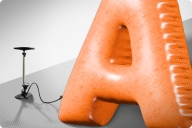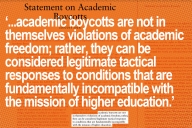You have /5 articles left.
Sign up for a free account or log in.
Faculty must defend their rights to their intellectual property, which are increasingly under threat, according to a draft report released Thursday by the American Association of University Professors.
The report, called “Defending the Freedom to Innovate: Faculty Intellectual Property Rights after Stanford v. Roche,” argues that university attempts to assert ownership over faculty intellectual property have accelerated since – and in response to – that 2011 U.S. Supreme Court decision. In that case, the court ruled that the inventor, not the institution, retained primary ownership of the invention, even when it was conceived in a federally funded lab subject to the Bayh-Dole Act of 1980 limiting government claims to ownership.
Although the property in Stanford v. Roche was patentable, speaking to a long history of institutions claiming ownership over such research, AAUP says that colleges and universities have ramped up ownership claims to property subject to copyright, as well – including online course content. Notable examples include the University of Pennsylvania’s recent non-compete draft policy against faculty moonlighting as online course instructors elsewhere, without the university’s permission.
That has implications for academic freedom and future of the profession, AAUP argues, as “the same reasoning could apply to a faculty member expecting to issue a potentially profitable book with a commercial press, since a university could insist that its own press publish the book instead, or that the institution must negotiate the contract with the commercial press and take a share of the income for doing so.”
“We are issuing this report in the midst of these fundamental changes in the character of faculty rights and academic freedom,” AAUP says. “Our purpose is to put the dialog on intellectual property on a new foundation, one that leads to a principle-based restoration of faculty leadership in setting policy in this increasingly important area of university activity.”
Historically, professors do share intellectual property on inventions and products created with university support, but books tend to be controlled entirely by the faculty authors, even if they, too, benefited from the college resources. Property models for online content are still emerging.
The report also highlights the University of California System’s recent adjustments to its faculty patent rights agreement, which explicitly assigns to the university the rights to inventions and patents made using its resources or facilities. AAUP says faculty must actively safeguard their intellectual property, ideally by signing a license granting the university the right to use – not own – the material.
Cary Nelson, professor of English at the University of Illinois at Urbana-Champaign and the report’s lead author, said via e-mail that because one faculty member may not have the “clout” to advocate for such an agreement, “[in] most cases, it's going to take collective action by a faculty senate or a contract negotiating team to secure and preserve those rights for everyone — either in a faculty handbook or collective bargaining agreement.”
The report includes a series of suggested principles to consider in such policies, including that faculty inventor rights don't "terminate" at the time of invention or discovery, but extend to management, licensing, public use and beyond; that the faculty senate or equivalent body will play a primary role in defining these policies; third-party "management agents" can be used to resolve disputes between the faculty member and university; and exclusive licensing should be avoided where possible.
The fight isn’t about money, but rather principle, Nelson said. Shared ownership or signing away ownership of original course content, for example, could mean that adjunct faculty are hired at “slave wages” to teach that course; that it could be revised without the professor’s consent; and that the professor may not be able to teach the course at another institution, should he or she move, among other consequences.
Along with its report, which outlines a series of principles related to intellectual property, AAUP published a virtual intellectual property tool kit for faculty, including a draft AAUP statement on intellectual property.
“The management of inventions, patents and other forms of intellectual property in a university setting warrant special guidance because it bears on so many aspects of the university’s core missions, values, and functions, including academic freedom, scholarship, research, shared governance, and the transmission and use of academic knowledge by the broader society,” the draft reads. “One fundamental principle should be clear: Inventions are owned initially by their own inventors. That is established in both the U.S. Constitution and U.S. federal patent law.”
It continues: “As such, faculty inventor ‘assignment’ of an invention to a management agent, including the university that hosted the underlying research, should be voluntary and negotiated, rather than mandatory, unless federal statutes of previous sponsored research agreements dictate otherwise. Faculty inventors retain a vital interest in the disposition of their research inventions and discoveries and should, therefore, retain rights to negotiate the terms of their position.”
Tracy Mitrano, director of IT policy and the Institute for Computer Policy and Law at Cornell University, said it’s a good idea – and essential – that such negotiations regarding online course enterprises happen before faculty work begins. But because each course is different, she said, it’s important that blanket policies are flexible, and can be adapted to each situation.
For example, she said, the average cost of a successful massive open online course is $100,000, and likely involves IT staff and other support for the professor creating the course. For that reason, shared ownership may be something the institution and the faculty member will want to consider, whether at the “default” ratio of 50-50, or something else.
"It's a brave new world," with lots to work out, she said.
The report also attracted some veiled criticism from intellectual property and legal experts, for possibly exaggerating the extent to which faculty intellectual property rights are under threat.
Ada Meloy, general counsel for the American Council on Education, said she saw no evidence of an escalation in university claims to ownership over faculty intellectual property, and that what discussions have emerged following Stanford v. Roche are necessary.
“Many institutions are making these changes based on their reading of the Supreme Court decision,” she said. “It’s all intended to ensure that both the faculty member and institution can benefit from any successful commercialization of the research results,” and to avoid the uncertainties of that case.
Douglas Lichtman, a professor of law specializing in intellectual property at the University of California at Los Angeles said via e-mail that such discussions make sense.
"The question is simple: what level of control should a university enjoy when a faculty member at that university invents or creates something?" Lichtman said. "It strikes me that there are a lot of plausible answers to that question, depending on what the university and the faculty member each understood to be their respective rights when the work began."
He continued: "Looking forward, this should just be a clear part of any employment agreement, with the university and the relevant faculty member negotiating about this just like they negotiate teaching loads, research support, and constraints on outside funding and employment."
The AAUP report is adapted from Recommended Principles to Guide Academy-Industry Relationships, a book scheduled for February publication by the AAUP Foundation.









